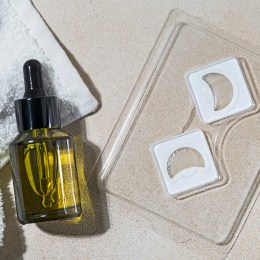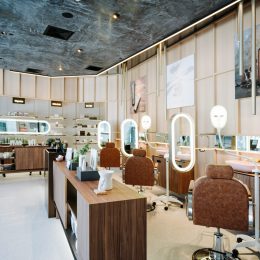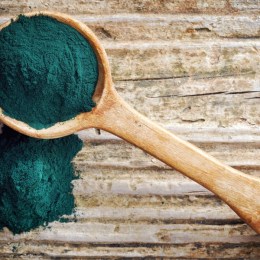Founder of Skin Virtue, Nina Gajic, explains what beauty professionals need to consider when faced with skin irritations.
In this day and age we are exposed to many pollutants and irritants that all impact our skin, therefore it is important to take a comprehensive ‘protection’ approach when dealing with allergic skin. Helping strengthen the skin’s protective barrier function, fortifying its response to irritant exposure and increasing the skin’s tolerance threshold is vital, particularly for compromised skin.
The condition of our skin very much depends on our skin barrier and its ability to repair itself. Our skin barrier is our first line of defence against irritants and if it is weakened our skin becomes more permeable allowing for easier access of irritants which can lead to allergic, inflamed, sensitised and irritated skin conditions.
Our approach to formulating skincare is to first and foremost, focus on helping strengthen the skin barrier function. Secondly, we include active ingredients that help to combat the skin’s allergic response to irritants. By helping strengthen the skin barrier and supporting the skin’s natural physiological function, we are creating a robust protective foundation to assist the natural healing, repairing and regenerating process of the skin.
What ingredients commonly cause an allergic reaction?
Fragrance is considered the most common irritant in cosmetic products and can be allergenic regardless of whether it is naturally or synthetically derived. Fragrances are a complex mixture of various scent substances, and anyone of us can be sensitive to one of these substances. The best way to be safe when choosing skincare is to look for products formulated with allergen-free fragrances; these formulations are less likely to trigger reactions. “Allergen-free fragrance” means simply that, the fragrance does not contain any of the 26 substances recognised as allergens by the current regulations.
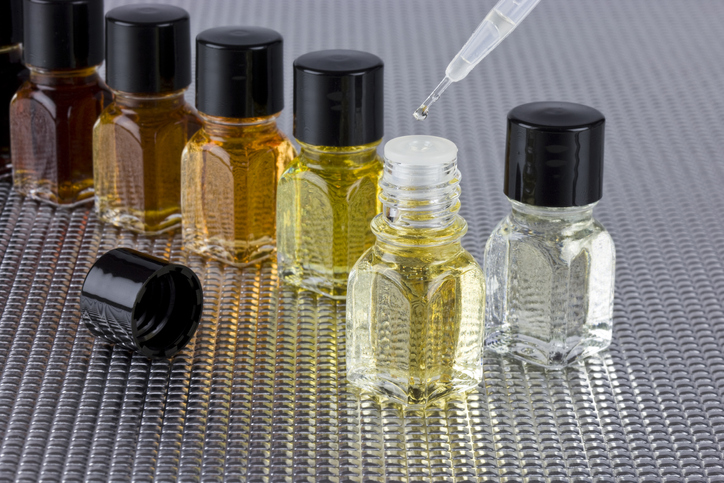
Other ingredients such as preservatives, solvents, binding agents
and softeners that can cause irritation and sensitivity include Parabens, Sodium Laurel Sulphate, Mineral Oils and Propylene Glycol (PEGS). Sodium Laurel Sulphate (SLS) is the ingredient that makes your cleanser or shampoo foam, and cleansing with these ingredients strips the skin and makes it more susceptible to irritation and sensitivity. PEGS is a humectant that draws moisture to the skin. Among all of the ingredients, PEGS are my least favourite, as in my experience, they are a strong skin irritant that can contribute significantly to contact dermatitis
In regard to active ingredients that can irritate, Vitamin C and Vitamin A can tend to make sensitive and allergic skin more irritated. They are, however, fantastic ingredients. My choice of Vitamin C is Ascorbyl Tetraisopalmitate and Ascorbyl Palmitate. Ascorbyl Tetraisopalmitate is an esterified derivative from Vitamin C, with the highest stability among all Vitamin C, and is non-acidic and gentle to use. Ascorbyl Palmitate is also a gentle and stable form of Vitamin C with enhanced penetration ability. Both are very effective.
My preferred form of Vitamin A is Retinyl Palmitate; it converts to Retinol and then Retinoic Acid, and this additional conversion process within the skin makes it less potent than other forms of Vitamin A. It is the least irritating form of Vitamin A, which makes it more comfortable to be applied daily and consistently without concern of irritation.
Allergic or adverse?
Allergic or adverse reaction can occur from many sources. To be able to identify whether you are dealing with an allergic or adverse reaction, therapists need to assess the response, its confinement and the developmental timeframe as well as investigate what products or ingredients the client was using. This is not a simple task
as both allergic and adverse reaction can be experienced simultaneously.
The difference between the two types of reactions are that allergic reactions occur when your skin comes in contact with an ingredient that sensitises your skin and erodes your skin barrier; subsequently, you become allergic to that ingredient. Repetitive or prolonged exposure to an ingredient or substance is required to induce an allergic reaction. It does not occur instantly and usually takes a couple of days to manifest. Adverse reactions, on the other hand, are more common and show up on the skin almost instantly. When the skin is exposed to an irritant, a rash develops and this rash is usually confined to the site of contact.
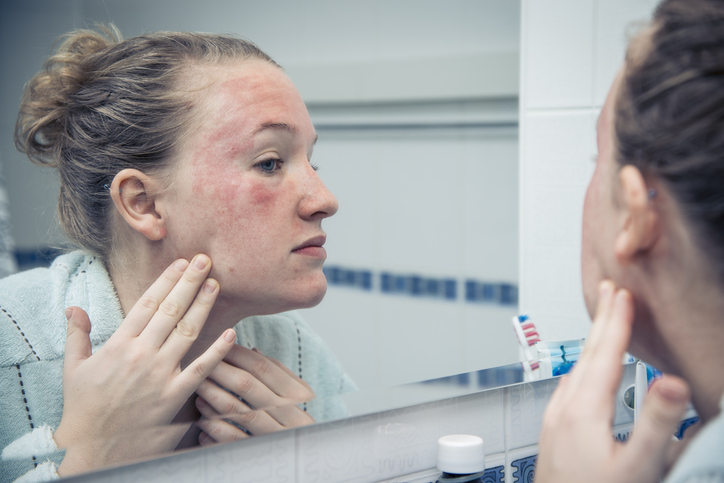
The most common contributor to both allergic and adverse reactions is fragrance, soaps, detergents solvents and an impaired skin barrier. To best treat sensitive, irritated and allergic skin, always choose brands that formulate with the least irritating ingredients available.
Skin Virtue is suitable for all spas and clinics. Our range includes formulations for all skin types and concerns and features three premium collections. I focused on developing a range that is simple to use yet multifunctional and effective. This allowed for the range to be smaller in size in comparison to many other brands which also makes it easier to choose the correct product for specific skin types and concerns.
DID YOU KNOW
There are 5 ways you can catch up with SPA+CLINIC?
- Our quarterly print magazine, delivered to your door. Subscribe here.
- Our website, which is updated daily with its own completely unique content and breaking news.
- Our weekly newsletter – free to your inbox! Subscribe here.
- Our digital magazine – click here to view previous issues.
- Our social media – see daily updates on our Instagram, Facebook & Linkedin



